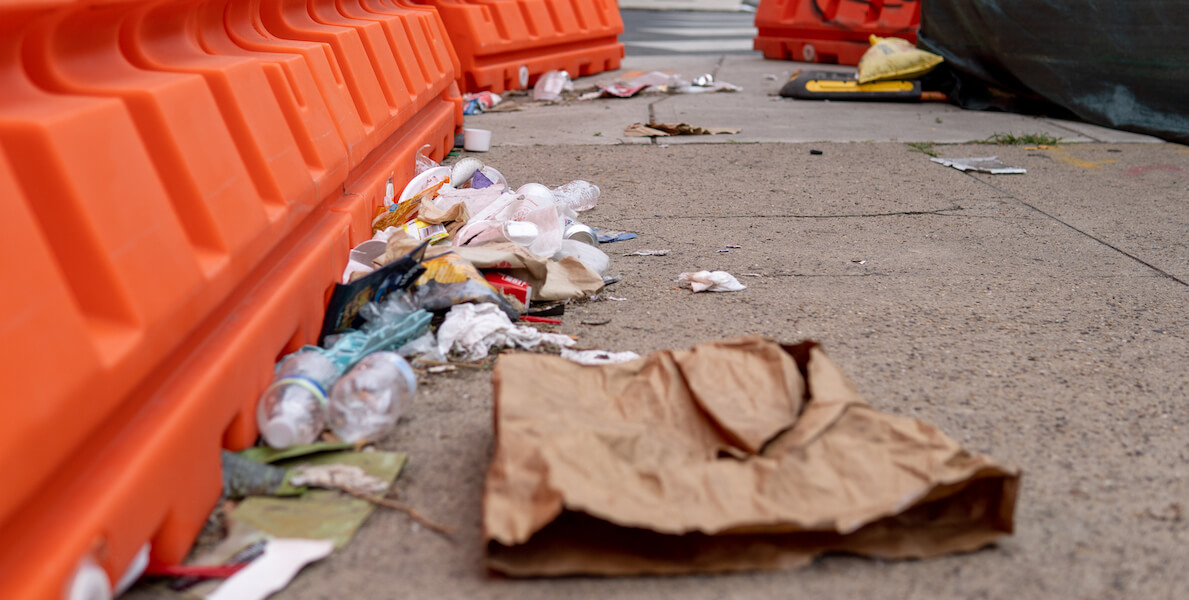As a city, we keep talking about illegal dumping, but we’re not really, as a collective, setting the right tone or attitude — an all out action-oriented response that’s needed for a crisis of this level. Local policymakers, from the Mayor to City Council, only pay this problem casual lip service. Council, each week, is more interested in introducing meaningless honorific resolutions as opposed to encouraging serious, ongoing discussions about blight, dumping, pollution and other serious environmental and quality of life issues in Philly.
It’s tragic because an effective strategy that eliminates illegal dumping, combined with a city-wide focus on environmental justice, is part of the solution to violent crime.
Trash and illegal dumping in Philly must be treated as part of the violent crime crisis. It’s astounding, for example, that Philadelphia police have not been deployed for illegal dumping response and arrest, or at the very least fines. That seems like common sense — especially since we know trashed environments exacerbate violent crime. Yet, in order for that to happen City Hall has got to first set the tone.
We have a crisis in leadership and attitude in Philly, where for way too long we accept trash and “Philthy” as a norm and, weirdly, a badge of honor. It’s not.
Federal intervention, such as what the Department of Justice is doing in Houston, is absolutely appropriate in a case like this. It’s gratifying to see that some Black Philadelphians, as Nick Russo noted in a Citizen article earlier this week, are looking to follow the example of Houston residents who filed a discrimination suit against their city for not responding to complaints about dumping in their neighborhoods as effectively as they do in predominantly White neighborhoods. They should have a rock solid case: even extensive analysis from City Controller Rebecca Rhynhart’s office shows huge disparities between basic sanitation service performance in largely White and affluent neighborhoods versus what mostly Black and low-income neighborhoods get.
Black residents in Philly, too, often live in trashed and blighted communities to which the City fails to ensure basic sanitation services and puts them at constant risk of heightened violence because of the pervasiveness of the trash and illegal dumping problem. Far too long, that’s often viewed as normal simply because the people who live in those communities are Black. Yet, what we’re really seeing is the centuries-long result of racism, segregation and disinvestment. The Philly mindset and public discourse seems to think trash-free, green-spaced and tree-lined neighborhoods are impossible or unachievable when Black residents demand that — yet, we see those same types of neighborhoods permanently existing in areas that are predominantly White and higher income.
Solutions to this problem don’t just fall on local policymakers, either. State legislators also have a role to play here and consistently drop the ball: They should be looking into how federal Infrastructure Law funds (of which Philly is set to receive $735 million) and Inflation Reduction Act funds (the full extent of what comes to Pennsylvania is still pending) to addresses illegal (and fight to make sure Republicans who run the state legislature aren’t blocking it, which is what they typically do). And the Congressional delegation for the Philly area is also failing on this count: They should be looking for and securing federal dollars to explore and implement solutions.
We have a crisis in leadership and attitude in Philly, where for way too long we accept trash and “Philthy” as a norm and, weirdly, a badge of honor. It’s not. It’s not funny; it’s not some bizarre or charming character trait for us to celebrate. It never was. It’s a rot on the city and it continues to put residents at risk and ruin lives. It must be treated like the crisis that it is.
Charles D. Ellison is executive producer and host of “Reality Check,” a daily public affairs program on WURD and is @ellisonreport on Twitter.
![]() RELATED
RELATED



